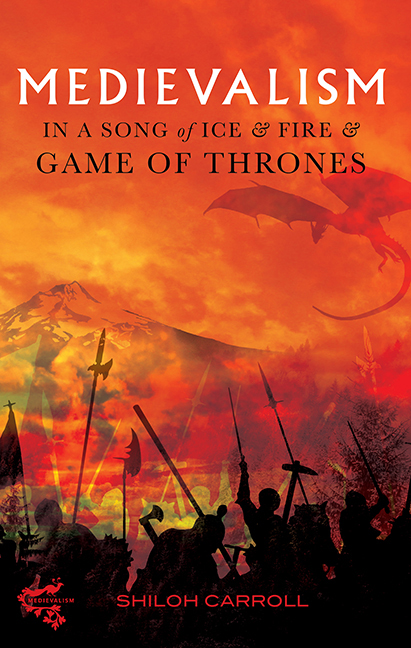Book contents
- Frontmatter
- Contents
- Acknowledgements
- Author's Note
- Introduction: Martin and Medievalist Fantasy
- 1 Chivalric Romance and Anti-Romance
- 2 Masculinity, Femininity, and Gender Relations
- 3 Sex and Sexuality
- 4 Postcolonialism, Slavery, and the Great White Hope
- 5 Adaptation and Reception
- Afterword: “Fantasy for people who hate fantasy”
- Bibliography
- Index
- Medievalism
4 - Postcolonialism, Slavery, and the Great White Hope
Published online by Cambridge University Press: 09 October 2019
- Frontmatter
- Contents
- Acknowledgements
- Author's Note
- Introduction: Martin and Medievalist Fantasy
- 1 Chivalric Romance and Anti-Romance
- 2 Masculinity, Femininity, and Gender Relations
- 3 Sex and Sexuality
- 4 Postcolonialism, Slavery, and the Great White Hope
- 5 Adaptation and Reception
- Afterword: “Fantasy for people who hate fantasy”
- Bibliography
- Index
- Medievalism
Summary
MEDIEVALIST FANTASY is a blend of the modern and the medieval, containing many colonial and postcolonial issues to be parsed. Despite the possibilities offered by the fantastic to explore unfamiliar realms inhabited by creatures that do not exist and humans with magical abilities, writers are still restricted by their own experiences as well as the necessity of communicating their ideas to an audience. Thus, ideas and cultures from the familiar world will still creep in, and for Western writers, this can include an almost subliminal imperialism. Nancy Batty and Robert Markley argue that science fiction is frequently imperialist in its assumption of the “manifest destiny” of human exploration and colonization of space. Fantasy, as Myles Balfe argues, tends to be set in a “moralized neo-medieval Europe,” and the plot is often concerned with “the efforts of various (male) heroes to defend ‘their’ (Good/familiar/ known) landscapes from attacks by ‘Others’, or with the inability of the heroes’ emasculated Eastern counterparts to do the same.” The people of the “Eastern” lands in these tales, Balfe claims, are in some way evil or corrupt and need the efforts of the Western heroes to save them, as they “cannot redeem their cultures, their selves, let alone […] protect their landscapes from outside invaders. Indeed, ‘their barbarous nature’ arguably serves to continually threaten the land- scapes and homelands in which they live.” Helen Young discusses at length how issues of race, Orientalism, and distrust of the Other are hard-wired into fantasy through Tolkien and Robert Howard, and how these issues have been perpetuated throughout the genre. While Martin does not set up obvious dichotomies between good and evil, black and white, Us and Other, his various peoples experience differing levels of invasion, occupation, colonialism, and postcolonialism, creating a dense tapestry of interaction between the cultures.
Examining a medieval, medievalist, or neomedieval text through a postcolonial lens can be tricky, as postcolonial critics, especially foundational ones such as Edward Said, tend to believe that imperialism is a post-medieval construct and thus no pre-modern history or text can be colonial or postcolonial. However, medieval scholars have argued, at length, that imperialism and colonialism are not restricted to the modern era just because the concept was not defined and explored until the eighteenth century.
- Type
- Chapter
- Information
- Medievalism in A Song of Ice and Fire and Game of Thrones , pp. 107 - 130Publisher: Boydell & BrewerPrint publication year: 2018



